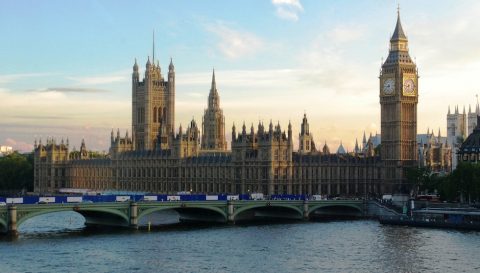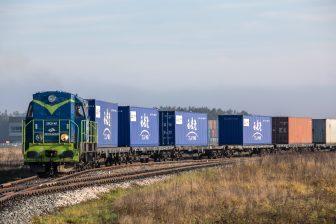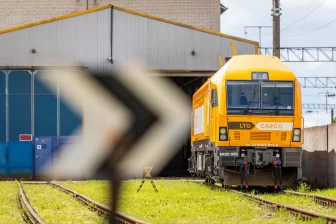
HS2 costs into twelve figures claims report
A leaked draft of a forthcoming review says the cost of Britain’s HS2 – the rail project connecting London, Birmingham and the North of England – has reached over 100bn pounds Sterling (117bn euro ), and it casts doubt on progressing the project beyond the Midlands. That has brought predictable denials from the Government, and even more predictable fury from the North. The implications for the rail freight industry remain unclear.
The famously pink pages of London’s Financial Times newspaper left faces even more red in London and across many northern cities in England. Red with embarrassment in Westminster, and red with rage in Manchester and elsewhere. Monday’s edition carried a leaked draft of the government’s own review of the HS2 project, which casts doubt over the viability of the project beyond the first phase between London and Birmingham. Moreover, the anticipated costs, according to the report, have gone beyond 100bn pounds for the first time. As we reported earlier (2 January), the projected cost of HS2, admitted by the UK government and the HS2 company itself stood at 80bn pounds (94bn euro). That figure is at least twice the projected budget and, by some early estimates, up to four times the anticipated cost of the project.
Government response
Grant Shapps, the UK Transport Secretary has remained tight-lipped, and has only been quoted as saying the report itself will be published very soon. The so-called Oakervee Report is already late, having been due at the end of 2019. The figures leaked to the Financial Times, are reportedly in a draft of the review, chaired by Douglas Oakervee, a past president of the Institution of Civil Engineers, which was commissioned last summer by the last government.
HS2 is intended to provide a new route between London and Birmingham, with subsequent phases extending the line in two branches, one to Manchster and one to Leeds, with improved connections to the existing rail network further north, as far as Newcastle, Edinburgh and Glasgow.
Benefits
The benefits for the freight industry are indirect, but the capacity made available on the existing network will allow more freight to run, and potentially remove significant volumes of commercial traffic from the very busy M1 and M6 road corridors. However, the leaked report most controversially proposes a six-month ‘pause’ on the phases north of Birmingham. That is no great concern in construction terms – there are no shovels on site and the lines to Manchster and Leeds are not expected for at least a decade.
However, the leaked report could propose a lower specification for those northern phases, with lower designed speeds. That has brought a furious response from civic leaders, notably Manchester’s socialist mayor Andy Burnham, who has called that proposal typical penny-pinching for the North of England.
Local opposition
With a slightly different agenda, some newly-elected members of the UK parliament, representing communities in the North of England, are actually in opposition to the project. The MPs – all part of the ruling Conservative Party – say its rising cost is at the expense of local infrastructure projects. They say that local rail provision across the whole of the North of England is inadequate.
The MPs intend to meet prime minister Boris Johnson on Wednesday to say the cost of HS2 is putting the brakes on much more urgently needed improvements, which would more directly benefit the regional economy. A broad alliance – Northern Powerhouse Rail – calls for huge improvements overall, principally making east-west connectivity better, such as the Liverpool-Manchester-Leeds-Hull axis, which is argued does not exist as a coherent route for passenger nor freight at present.
Business response
A consortium of construction companies, representing the industry with many involved in the HS2 project, have also contacted the government, saying that a cancellation of the line would be even more detrimental to the economy at large. Most sources place the current committed expenditure on HS2 at 8bn pounds (9.4bn euro). Almost all of that figure has been spent in the construction industry. So far, the only rail activity directly generated by HS2 has been the bulk movement of construction materials – making the project almost 100 precent freight, at least for now.




